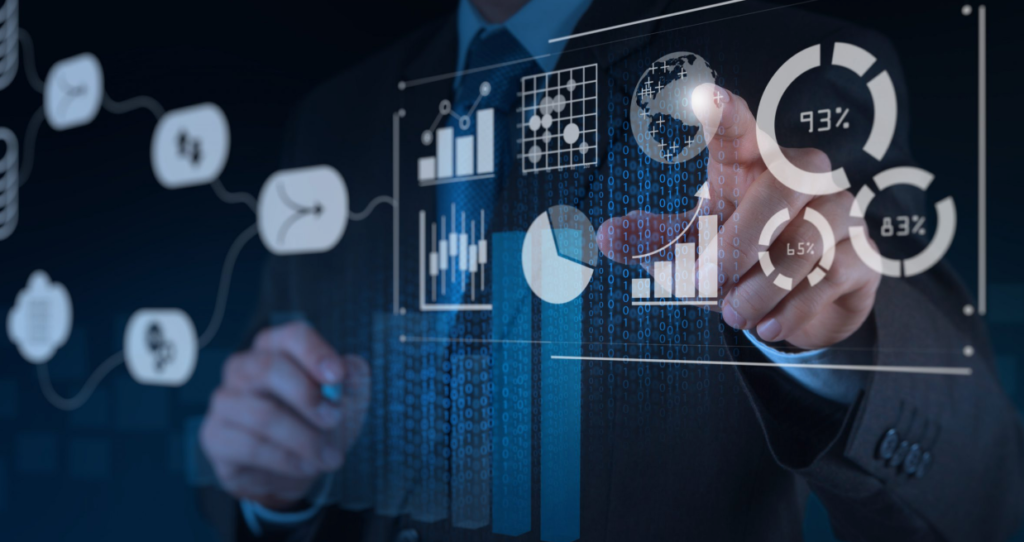Marketing Analytics AI in Austin, Texas, United States, is used to automate customer segmentation, predict consumer behavior, and personalize content delivery to improve engagement rates. AI-driven analytics also assess campaign effectiveness in real time, adjusting strategies to maximize ROI. By leveraging AI in marketing analytics, businesses can gain a deeper understanding of their customers, personalize their marketing efforts, and optimize campaign performance. AI algorithms analyze data from various sources to identify market trends, customer segments, and emerging patterns, providing proactive insights for new business opportunities and a competitive edge.
Additionally, AI tools such as ChatGPT can be used to prompt marketing-related queries and provide targeted responses, enhancing marketing strategies with AI-driven insights and data-driven decisions. With the use of AI in marketing analytics, businesses can navigate the martech landscape and harness the power of AI to reshape marketing analytics and drive faster data-driven decisions.
Marketing Analytics AI

The Role of Marketing Analytics AI
Leveraging AI in marketing analytics enhances customer understanding, personalizes efforts, and optimizes campaign performance. AI solutions automate segmentation, predict behavior, and assess real-time effectiveness for improved ROI. Stay ahead with proactive data analysis to identify trends and new business opportunities.
Defining Marketing Analytics Marketing analytics refers to the practice of measuring and analyzing marketing performance data to improve the effectiveness of marketing campaigns. The data is collected from various sources such as social media, email campaigns, website traffic, and sales data. With the help of marketing analytics, marketers can gain insights into customer behavior, preferences, and trends. They can then use these insights to tailor marketing strategies and campaigns to improve customer engagement and drive more conversions. The Evolution of AI in Marketing As technology advances so does the role of AI in marketing analytics. AI-powered analytics tools are now being used to automate customer segmentation, predict consumer behavior, and personalize content delivery to improve engagement rates. These tools assess campaign effectiveness in real time, adjusting strategies to maximize ROI. AI-driven analytics also help to identify new business opportunities, innovate, and stay ahead of the competition. Marketing Analytics AI Course To keep up with the evolving landscape of marketing analytics, professionals can take a Marketing Analytics AI course. These courses cover topics such as data analysis, machine learning, and AI algorithms. They teach professionals how to use AI-powered analytics tools to gain insights into customer behavior and preferences. By taking a Marketing Analytics AI course, professionals can enhance their skills and stay up-to-date with the latest trends and technologies in the industry. Marketing Analytics AI Jobs As AI continues to play an increasingly important role in marketing analytics, the demand for professionals with AI skills is growing. Companies are looking for professionals who can use AI-powered analytics tools to gain insights into customer behavior and preferences. Marketing Analytics AI jobs include roles such as data analysts, data scientists, marketing analysts, and digital marketers. These professionals use AI-powered analytics tools to develop and implement effective marketing strategies and campaigns.
Harnessing Data For Marketing Analytics AI
Data collection involves gathering information from various sources to build a comprehensive dataset for analysis.
- Utilize CRM systems, social media platforms, website analytics, and customer feedback.
- Ensure data quality and accuracy through regular monitoring and cleansing processes.
AI plays a crucial role in analyzing marketing data to extract valuable insights and enhance decision-making.
- AI algorithms can identify patterns, trends, and correlations in large datasets quickly and efficiently.
- Machine learning models can predict consumer behavior and personalize marketing strategies.
Personalization and Targeting With AI- Marketing Analytics AI
Personalization and targeting with AI revolutionize marketing strategies by leveraging advanced technologies to understand consumer behavior and tailor marketing efforts for maximum impact.
Understanding Consumer Behavior
AI-driven analytics solutions delve deep into consumer behavior patterns, providing insights that enable marketers to anticipate needs and preferences accurately.
Ai-driven Personalized Marketing
With AI-powered personalized marketing, businesses can create tailored experiences for each customer, enhancing engagement and driving conversions effectively.
Optimizing Marketing Strategies With AI
Predictive Analytics For Campaign Success
With the integration of AI in marketing analytics, predictive analytics plays a pivotal role in determining the success of marketing campaigns. By leveraging advanced algorithms and machine learning, predictive analytics enables marketers to forecast consumer behavior, identify trends, and anticipate market shifts. This empowers businesses to make data-driven decisions, allocate resources efficiently, and refine their strategies for optimal results.
Ai-enabled Marketing Automation
AI-enabled marketing automation revolutionizes the way businesses interact with their audience. By harnessing the power of AI, marketers can automate repetitive tasks, personalize customer experiences, and deliver targeted content at the right time. This not only enhances efficiency but also cultivates deeper engagement and fosters long-term customer relationships, ultimately driving business growth and success.

Challenges and Ethical Considerations
In the realm of marketing analytics AI, businesses face challenges and ethical considerations. Implementing AI technologies raises questions about data privacy, algorithm bias, and transparency in decision-making processes. Striking a balance between innovation and ethical standards is crucial for leveraging AI effectively in marketing strategies.
Data Privacy And Security
Ensuring data privacy and security is a paramount concern in the realm of marketing analytics AI. The collection, storage, and processing of vast amounts of consumer data raise significant ethical and legal issues. Data breaches and unauthorized access to personal information are constant threats that require robust security measures and strict compliance with data protection regulations.
Ethical Use of AI in Marketing
The ethical use of AI in marketing involves transparency and accountability. Marketers must prioritize fairness, non-discrimination, and respect for individual autonomy in their AI-driven strategies. It’s crucial to guard against manipulative or deceptive practices, ensuring that AI algorithms are used to enhance customer experiences and not to exploit vulnerabilities.
Implementing AI-driven marketing analytics
In today’s competitive landscape, implementing AI-driven marketing analytics is crucial for businesses to stay ahead. By leveraging AI tools for web analytics, companies can gain valuable insights, optimize marketing strategies, and enhance customer experiences. This article explores the integration of AI tools and building a data-driven marketing culture to empower businesses with actionable data-driven decisions.
Integration of AI Tools
AI tools for web analytics play a pivotal role in transforming marketing strategies. By integrating AI-powered tools such as predictive analytics and machine learning algorithms, businesses can analyze massive datasets to uncover valuable patterns and trends. This empowers marketers to make data-driven decisions, optimize ad spend, and target the right audience with personalized campaigns.
Building A Data-driven Marketing Culture
Embracing a data-driven marketing culture is essential for the successful implementation of AI-driven marketing analytics. This involves fostering a mindset where decisions are backed by data insights, and continuous experimentation and learning are encouraged. By establishing a culture that values data-driven decision-making, businesses can effectively leverage AI tools and derive actionable insights to refine their marketing strategies.
Future Trends In AI-powered Marketing Analytics
AI-powered marketing analytics is the future of digital marketing. By leveraging AI algorithms, businesses can analyze customer data to personalize marketing efforts, optimize campaign performance, and identify new business opportunities. With AI, marketers can make data-driven decisions and stay ahead of the competition.
Advancements In AI Technology
In the ever-evolving landscape of marketing analytics, AI technology continues to advance, presenting marketers with innovative tools and solutions. The integration of AI tools for web analytics has revolutionized the way data is collected, analyzed, and utilized to drive marketing strategies. As AI algorithms become more sophisticated, they enable marketers to gain deeper insights into consumer behavior and preferences, leading to more targeted and effective campaigns.

The Impact of AI on Marketing Professionals
With the rapid advancements in AI, marketing professionals are experiencing a transformative shift in their roles. The use of AI in marketing analytics has not only streamlined processes but also empowered professionals to make data-driven decisions with greater precision and efficiency. Additionally, the availability of AI-powered tools, such as those offered through the Google Marketing Analytics certification, equips marketers with the knowledge and skills to leverage AI for enhanced campaign performance and customer engagement.
Conclusion
In today’s fast-paced digital landscape, AI revolutionizes marketing analytics by enhancing customer insights and optimizing campaigns. AI-driven solutions automate tasks, predict consumer behavior, and provide real-time campaign assessment for improved ROI. By leveraging AI tools, marketers can gain a competitive edge, innovate, and proactively seize new opportunities.

